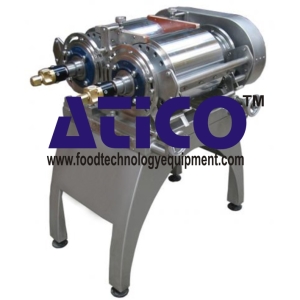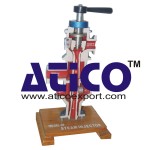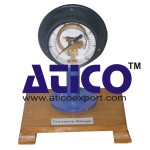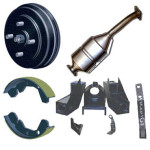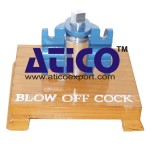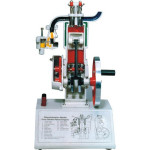Drum Dryer
Description of Drum Dryer
Endplates:
The endplates are of circular design, arranged so that the knife bars, feed rolls etc. may be located in any suitable position around the periphery of the roll.
Knife Bars:
The scraper knives are constructed rigidly and are so arranged that they may be used in a universal fashion when the machine is being operated with different types of feed. Adjustment of the knives is by means of hand wheels.
Drive:
Drive to the machine consists of machine-cut spur wheels driven by a pinion mounted on a reduction gear which is an integral part of the variable speed drive unit, giving roll speeds of 0 to 20 rpm.
Safety Gear:
Safety gear of the spring loaded type is incorporated into the machine to minimise damage in the event of foreign matter falling between the cylinders. The roll adjusting gear is also incorporated into the safety gear.
Rotary Unions:
These are provided to permit the introduction and extraction of heating or cooling medium. They are of special design to accomodate steam, water and water-based coolants. Each union is fitted with a length of flexible piping and also included are steam inlet valve, pressure gauge and steam pipe.
Exclusions
- Simple drying of a material to give moisture content and the drying time (or residence time) required
- Determination of drying curves to assess the feasibility of fluidised bed drying of a material on an industrial scale
- Drying curves are relevant to the mechanism of drying – they may be used as a basis for heat and mass balance, thermal efficiency of drying and dryer design
- Calculation of heat transfer coefficients for different conditions – important in drier design and comparison of fluidised beds with other drying methods
- Calculation of heat transfer coefficients for different conditions – important in drier design and comparison of fluidised beds with other drying methods
Technical Specification
Drum diameter: 305mm
Drum length: 203mm
Heating area of one drum: 0.19m²
Steam consumption: 1.5kg dry saturated steam @ 7 bar per kg of evaporation

